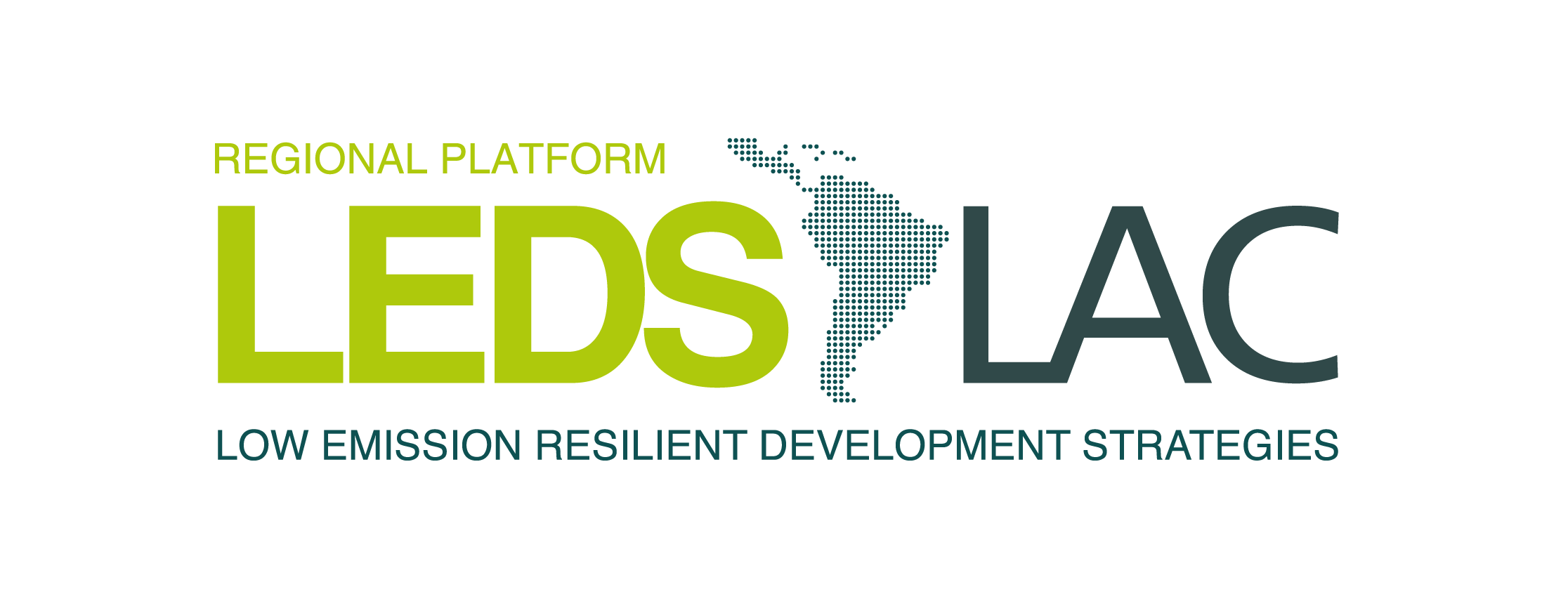Day: Wednesday, August 7, 2019.
Time: 09:00 - 10:30 am (Costa Rican time)
Check the time according to your location here: http://bit.ly/30ZVF3R
Agenda
Welcome. Aída Figari. Technical expert of the LEDS LAC Secretariat, Libélula Perú.
Katowice Climate Package: modalities, procedures and guidelines for the implementation of the transparency framework. Lucio Santos. Forestry Officer - REDD+ LAC Coordinator, Food and Agriculture Organization of the United Nations (FAO) and Gabriela Alonso. Consultant, World Bank. | Download presentation
Monitoring, reporting and verification (MRV): challenges of the Paris Agreement for developing countries. María José Sanz Sánchez. Scientific Director, BC3 Basque Centre for Climate Change. | Download presentation
A comprehensive MRV compatible with market mechanisms for Chile. Jenny Mager. Mitigation Coordinator, Chilean Ministry of Environment (MMA). | Download presentation
About the webinar
We are at a key moment for countries to take action towards increasing the ambition of their Nationally Determined Contributions (NDCs). Under the terms of the Paris Agreement, countries will have until 2020 to reassess their climate plans and commit to a level of ambition that will prevent global warming above 1.5°C.
This webinar, co-organized by LEDS LAC and the NDC Partnership, is the second in a series of six webinars focused on reviewing and increasing the ambition of climate commitments. This time, we will focus on identifying, through country experiences, possible linkages between the NDC cycle and the continuous improvement of national MRV systems for greenhouse gas emissions and removals.
The objective of the webinar is to facilitate understanding of the Katowice Climate Package and Parties' communication and reporting obligations under the Paris Agreement, as well as to share information on the modalities, procedures and guidelines for the implementation of the transparency framework. We will explore some of the challenges for developing countries and learn about Chile's experience developing its national greenhouse gas inventory. The webinar will be conducted in Spanish. If you have any questions about this event, please contact the LEDS LAC Platform Secretariat: info@ledslac.org.
About the panelists
Scientific Director of the Basque Centre for Climate Change. Her own research agenda focuses on effective land use decisions and optimal allocation of land resources for sustainable and efficient development. She was Coordinator of the UN-REDD Program at FAO (2011-2015) and Senior Officer at the United Nations Framework Convention on Climate Change (UNFCCC), supporting negotiations on agriculture, forestry issues, land use, land use change (AFOLU) and REDD+ until 2011. Prior to 2007, she was Director of the Air Pollution and Atmospheric Chemistry Program at the Center for Mediterranean Environmental Studies and advisor to the Spanish Minister of Environment and a member of the UNFCCC Clean Development Mechanisms Executive Board in 2006-07. She was lead author of the GHG Inventory Guidelines and the Fourth Assessment Report of the Intergovernmental Panel on Climate Change and was awarded, along with the collective, the Nobel Peace Prize in 2008 for her contributions to the Panel. She holds a PhD in biology from the University of Valencia and worked extensively on air pollution and climate change assessments in the Mediterranean regions after her postdoctoral fellowship at Arizona State University.Jenny holds an MPA degree from SIPA in International and Public Affairs with an emphasis concentration in Environmental Policy and Science. She currently serves as head of the Mitigation and Emissions Inventories Department of the Climate Change Division at the Chilean Ministry of Environment (MMA), where she coordinates the elaboration of the Biennial Climate Change reports and the implementation plan of Chile's commitments under the Paris Agreement. He is a member of the UNFCCC Roster of Experts. His expertise is in the reduction of GHG emissions from public policies, prospective analysis of scenarios; MRV of mitigation actions, among others. He graduated from the University of Santiago in 2006, where he studied Geographical Civil Engineering. From 2007 to 2010, she worked on air pollution issues at the National Environmental Commission (CONAMA). Since 2010, she has been part of the climate change team at the MMA. She is a former member of Luksic.Lucio Santos is an agricultural engineer with an advanced university degree in environmental sciences and rural development who has participated in climate change negotiations on REDD+ and LULUCF issues. He is a consultant for the development and implementation of MRV systems and REDD+ early implementation activities, with experience in mitigation assessments, options analysis in the forestry and agricultural sectors and in socioeconomic analysis and diagnosis of the countryside and in the design and implementation of development programs.Gabriela Alonso has more than 10 years of experience in forest policy, climate change and south-south cooperation. She currently works as a consultant for the World Bank in close coordination with Central American countries and Mexico on forest, land use and climate change issues. She is an Environmental Engineer with a Master's degree in Environmental Management from Yale University.
